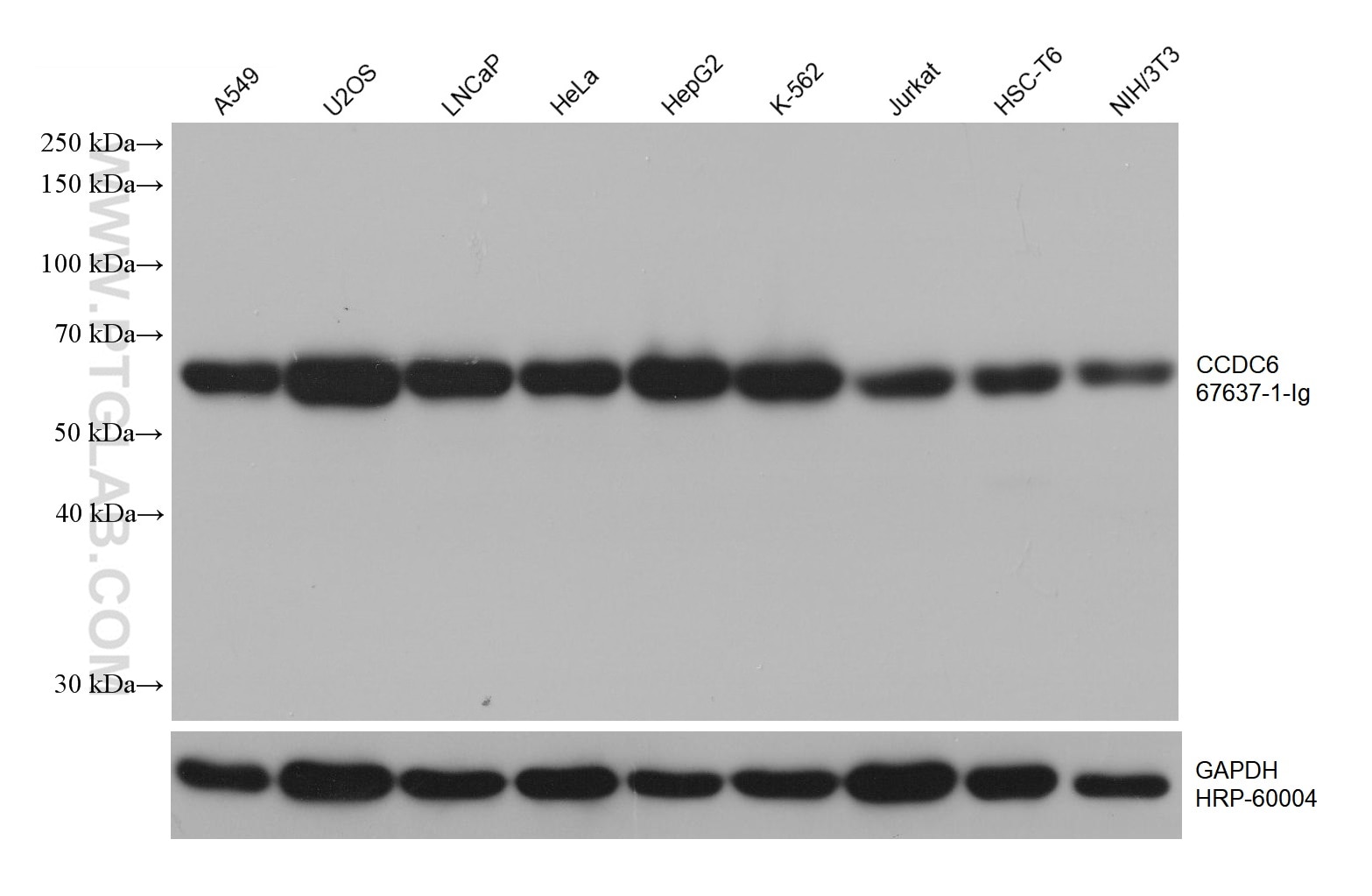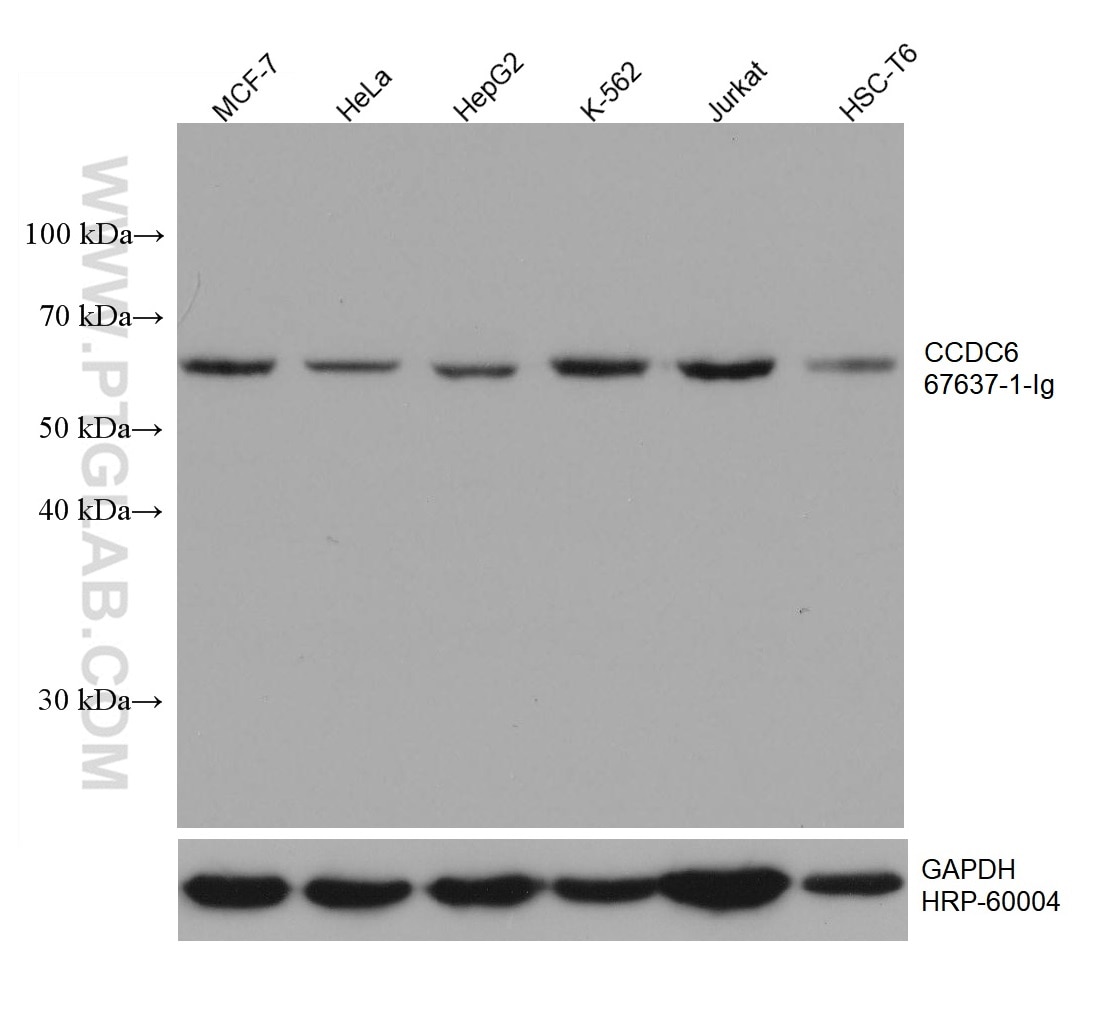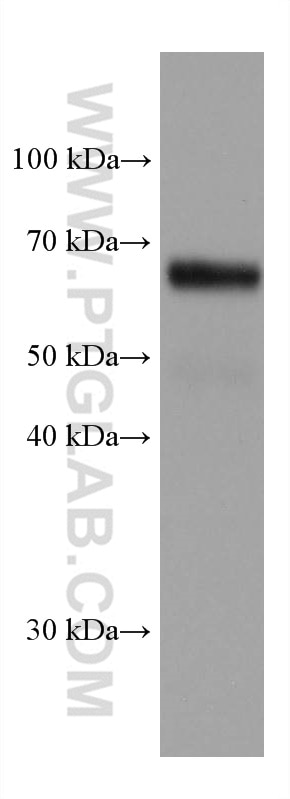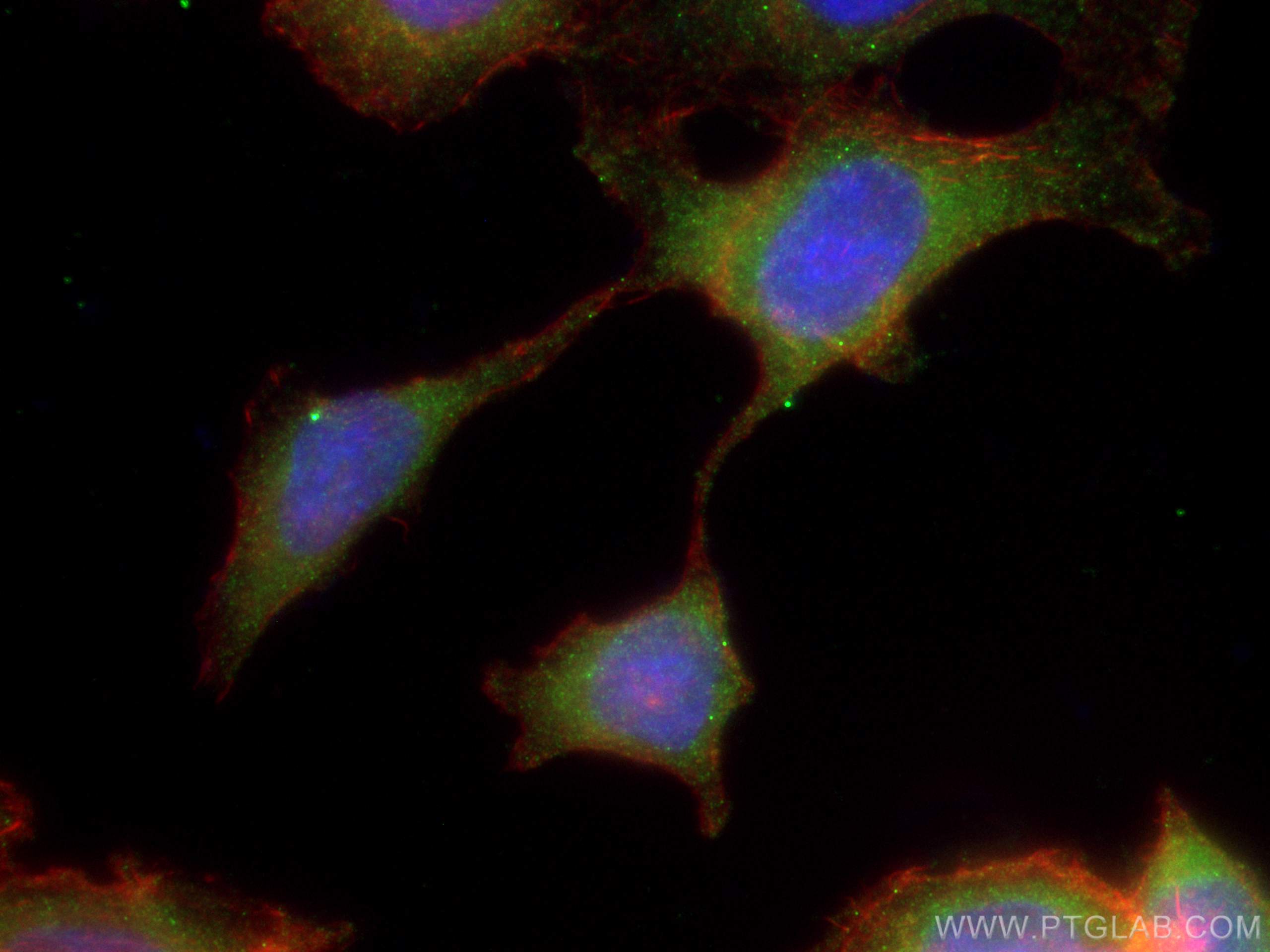Product Information
67637-1-PBS targets CCDC6 in WB, IF/ICC, Indirect ELISA applications and shows reactivity with Human, mouse, rat samples.
| Tested Reactivity | Human, mouse, rat |
| Host / Isotype | Mouse / IgG1 |
| Class | Monoclonal |
| Type | Antibody |
| Immunogen | CCDC6 fusion protein Ag6952 Predict reactive species |
| Full Name | coiled-coil domain containing 6 |
| Calculated Molecular Weight | 474 aa, 53 kDa |
| Observed Molecular Weight | 65 kDa |
| GenBank Accession Number | BC036757 |
| Gene Symbol | CCDC6 |
| Gene ID (NCBI) | 8030 |
| RRID | AB_2882838 |
| Conjugate | Unconjugated |
| Form | Liquid |
| Purification Method | Protein A purification |
| UNIPROT ID | Q16204 |
| Storage Buffer | PBS only , pH 7.3 |
| Storage Conditions | Store at -80°C. |
Background Information
CCDC6 (Coiled-coil domain-containing protein 6) is also named as Protein H4, D10S170 and TST1. CCDC6, was initially isolated as part of a tumorigenic DNA originated by the fusion of CCDC6 with the tyrosine kinase of RET receptor. CCDC6 has been considered as an accidental partner of the RET protooncogene, providing the promoter and the first 101 aa necessary for the constitutive activation of the oncogenic Tyrosine Kinase (TK) RET in thyroid cells. The 65 kDa product of CCDC6 has a nuclear transfer sequence with no transmembrane domains and is predicted to locate in both the nucleus and the cytoplasm (PMID: 29044514). The CCDC6 is a phosphoprotein, predicted target of several S/T kinases which can modulate the protein stability and the intracellular shuttling into the nucleus upon different cellular signals mediated by ERK1/2, ATM and CDK1/2. CCDC6 is involved in cellular response to DNA damage mediated by ATM, with the final result of promoting cellular apoptosis. CCDC6 depleted cells are considered defective of DNA repair checkpoint and proceed faster than the control cells in the cell cycle upon induced DNA damage (PMID: 22655027).









